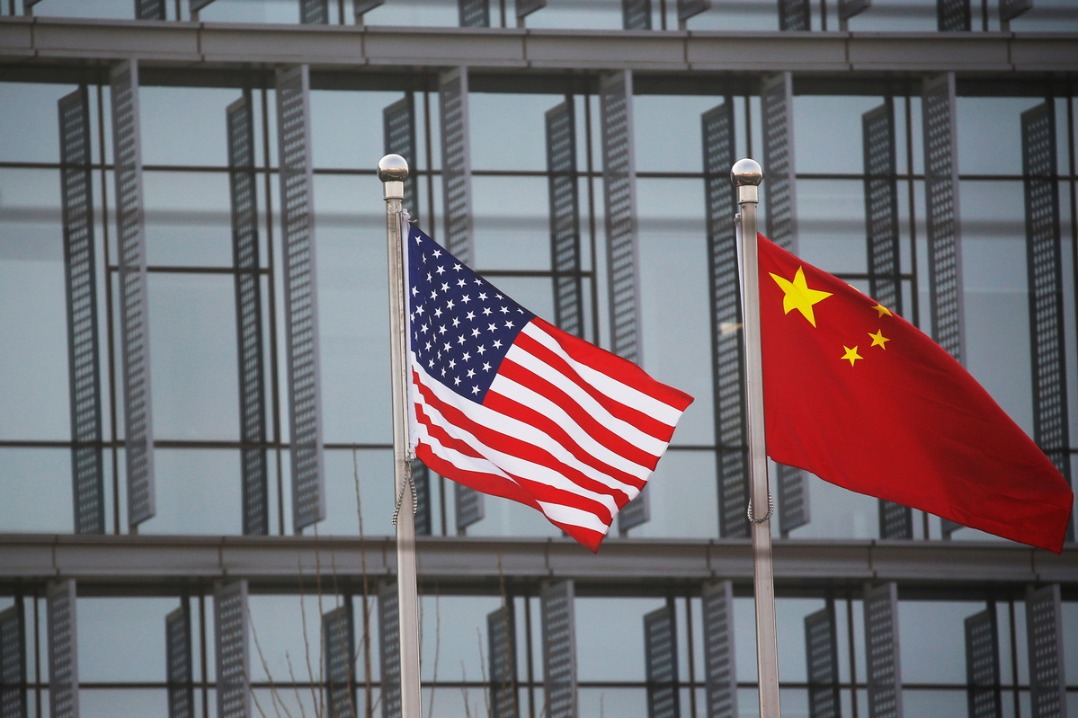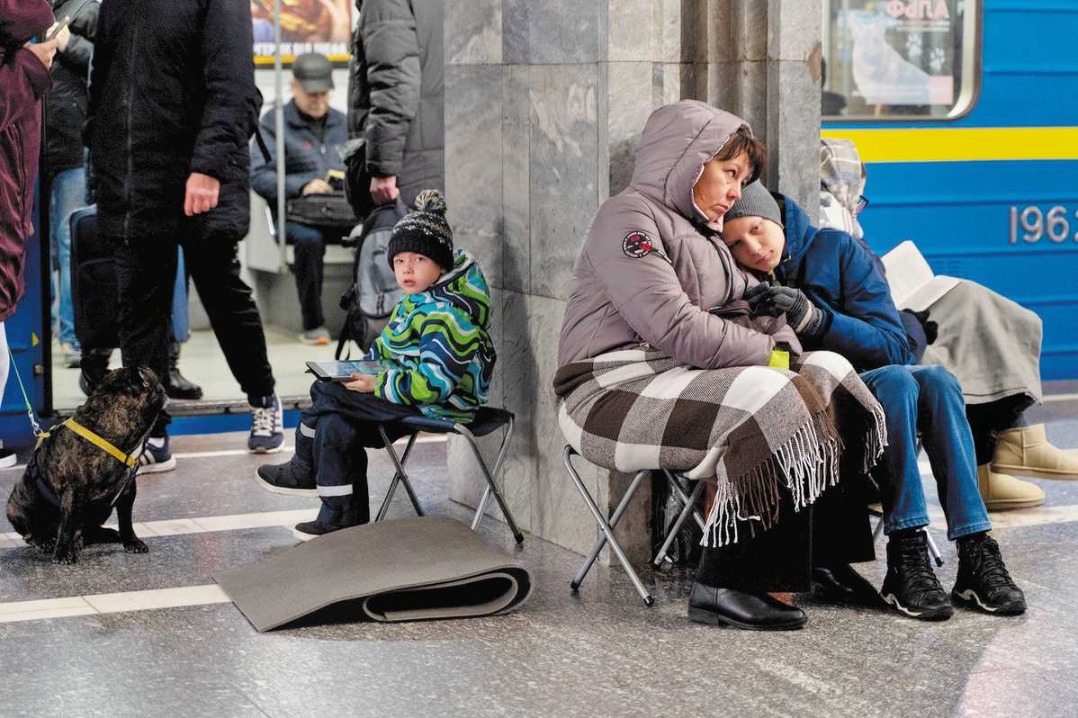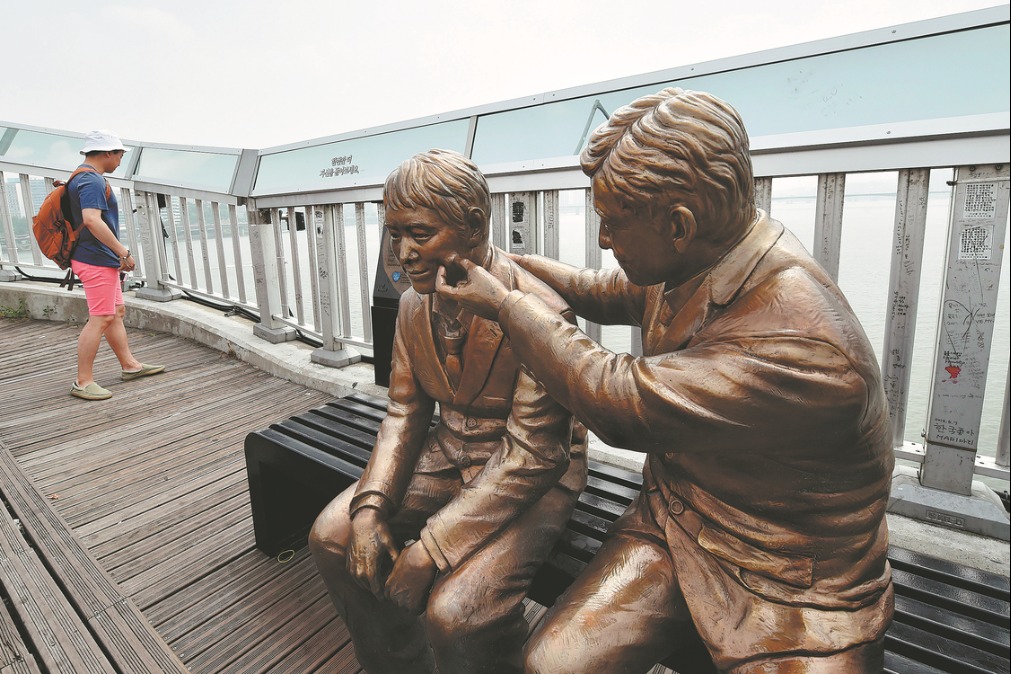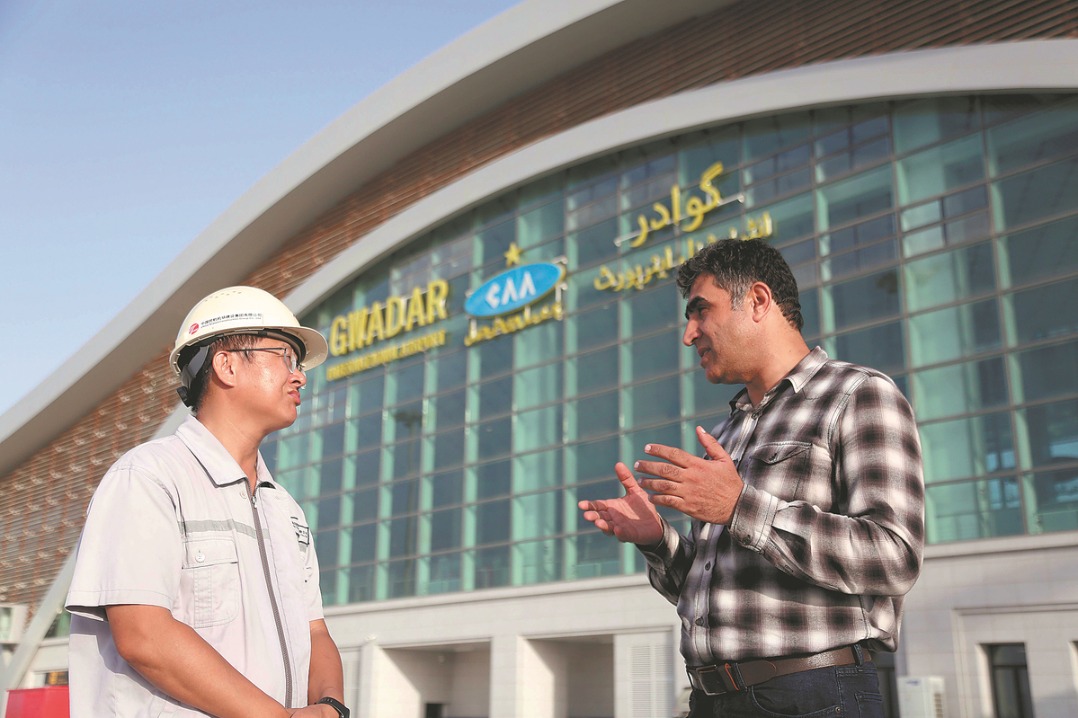Rare call signals shift in reality in Europe
Scholz-Putin talks on Ukraine reflect change in political fortunes: Experts

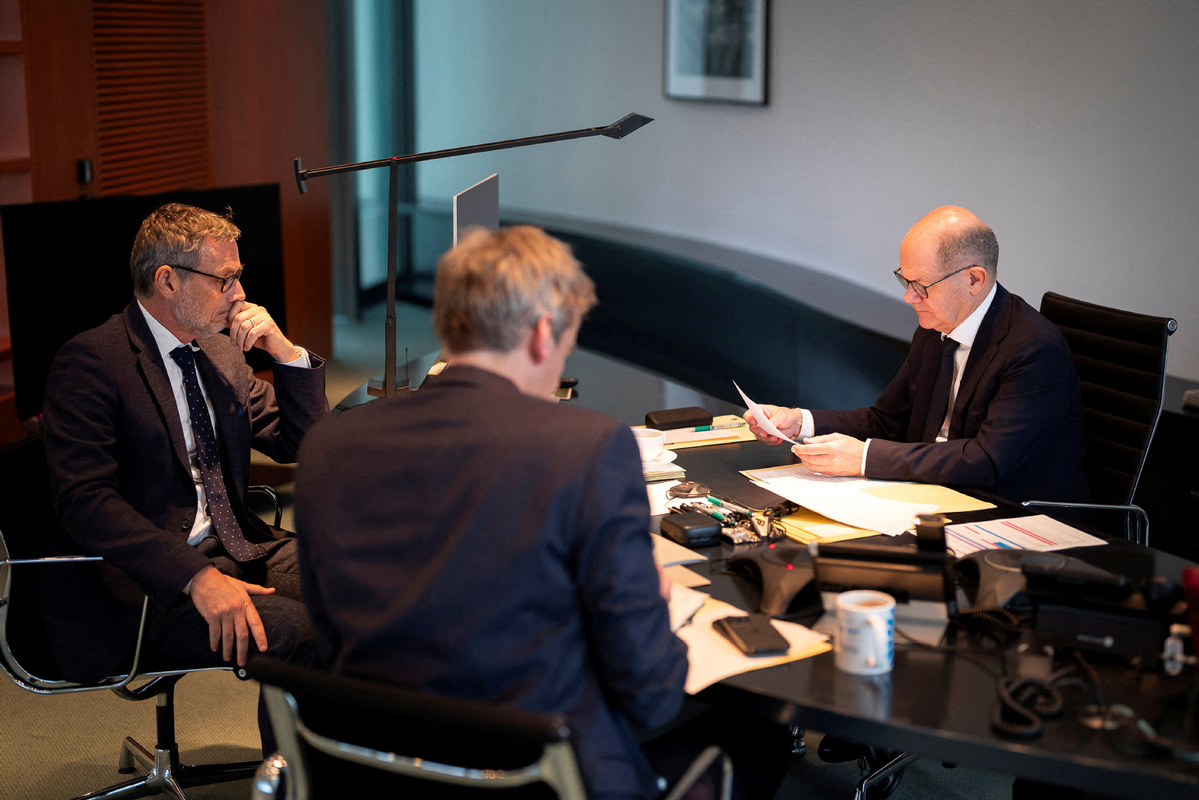
The talks between German Chancellor Olaf Scholz and Russian President Vladimir Putin, first in nearly two years, are a reflection of shifting political and economic reality in Europe and the leadership change in the United States, experts say.
In Friday's hourlong phone talk, Scholz urged Russia to end the conflict in Ukraine, withdraw troops and be prepared to negotiate with Ukraine with the aim of achieving a just and lasting peace, according to a German government statement.
The Kremlin said that in the call, initiated by the German side, Putin told Scholz that any agreement to end the special military operation in Ukraine "should take into account the security interests of the Russian Federation", and should "proceed from the new territorial realities and, most importantly, address the root causes of the conflict".
Ivona Ladjevac, deputy director at the Institute of International Politics and Economics in Belgrade, said the European Union's decision to impose sanctions on Russia has caused Germany to "decline in every sense", citing its worsening economy and living standards as well as complicating domestic politics.
"Given to such circumstances and faced with the falling apart of the ruling coalition, it seems that Scholz decided to approach Putin hoping that he could entice him to talks which eventually would lead to cease-fire and peace," Ladjevac said.
"Such a scenario would benefit Scholz, improve his image and possibly lead him to another mandate," she said, referring to the Feb 23 snap election called by Scholz following the collapse earlier this month of his three-party coalition over budget disagreements.
A YouGov poll for the German Press Agency last month showed that 59 percent of Germans were in favor of Scholz and Putin having a phone conversation, while 26 percent opposed the idea and 15 percent did not express an opinion.
Dilemma for Germany
He Zhigao, a researcher at the Institute of European Studies at the Chinese Academy of Social Sciences in Beijing, said the Russia-Ukraine conflict is a dilemma for Germany.
"The prospect of Donald Trump reducing aid to Ukraine will force Europe to tackle the crisis alone while Germany has to sustain the assistance to save face," he said.
Tuesday marks the 1,000th day of the conflict. Germany is the second-largest source of assistance to Ukraine, trailing only the US.
Scholz's phone call was based on the hope of finding a peaceful solution and especially the widespread support among his Social Democratic Party for no escalation in the conflict, He said. "So Scholz made the first move to avoid more dilemma for Germany and Europe."
A July study by the European Council on Foreign Relations revealed that Europeans tend to believe that Ukraine will not defeat Russia on the battlefield, with roughly one-third to half of those surveyed believing the conflict will end in a negotiated settlement and up to 31 percent seeing a Russian victory as most likely.
Andrew Korybko, a US political analyst in Moscow, agreed, saying Scholz's call was likely influenced by Trump's election victory.
"(Trump) promised to prioritize ending the Ukrainian conflict, with many expecting that he'll propose a compromise," he told China Daily.
"It makes sense for Scholz to directly explore Putin's flexibility toward a compromise, which can enable him and his country to better prepare for that possibility."
From Russia's perspective, Scholz's call broke the ice with the West and could pave the way for more official dialogue with other leaders who have thus far refused to speak to Putin, he said.
"This could in turn help (Putin) explore the West's flexibility toward a compromise, thus facilitating an eventual deal with time."
Scholz has vowed unwavering support for Ukraine, but he has been cautious not to approve the delivery of long-range Taurus cruise missiles to Ukraine for fear of a major escalation.
German Economy Minister Robert Habeck, the Green Party chancellor candidate for the Feb 23 election, told ARD television on Sunday that he would approve the delivery of German missiles if he wins the election.


















